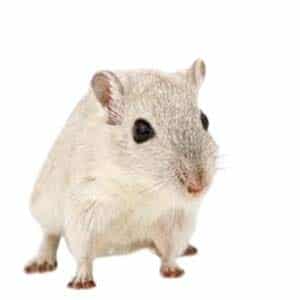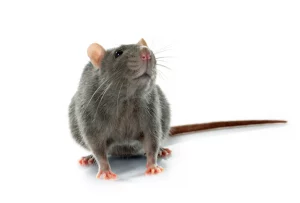Many homeowners face excessive mice nuisance in summer because they don’t know why mice come into the house in the summer. A mouse should not enter your home in summer as it may also find shelter and escape from the outside world. However, for this reason, you need to check your
Mice tend to move around more during summer as opposed to other seasons. It is necessary for their survival – to relocate from their winter and spring nests into places where they can survive in hotter temperatures.
Mice have been observed to move around more during summer than in other seasons. The reason is that they need more space for their winter and spring nests. During summer, mice can move from the old homes inside their nests into new homes where they might not be able to find enough food for themselves.
Mice are known for their habit of moving about during the summer months. It is a necessity for their survival. Their life depends on them to find warmth and rest. It is also a necessary process to build up a winter fat layer that will help them hibernate through the cold winters and harsh winters. When they go through this process, the winter fat layer will deplete and be lost quickly,
Reasons Why do mice come into the house in the summer?
 Most people believe that mice and other rodents can only get into their homes in autumn because they are looking for shelter before winter and frosts come. However, this is not quite so. Their hibernation period starts during summer, and it takes them only six weeks to return to their winter houses. Nevertheless, they have access to food and water during the whole winter: they need
Most people believe that mice and other rodents can only get into their homes in autumn because they are looking for shelter before winter and frosts come. However, this is not quite so. Their hibernation period starts during summer, and it takes them only six weeks to return to their winter houses. Nevertheless, they have access to food and water during the whole winter: they need
There have a few reasons for Why do mice come into the house in the summer
1. For food and water:
During summer, rodents can come into our homes, especially those that have had a time when they could not find water. Food is abundant in summer. Mice love to drink water and can get into the home, even if it’s not raining. It’s essential to protect your food from mice, especially during droughts.
2. To get relief from heat:
A mouse getting inside in summer to look for water will also relieve heat inside your home and likely find shelter somewhere inside. For this reason, you should always inspect your house while summer is hot. You can check whether there are mice by looking through the window and pushing the excellent window sills to see whether they are moving. It would be best if you always inspected your windows to ensure no mice are hiding there.
3. For shelter:
High humidity levels in summer combined with the high temperatures cause even more stress and could be life-threatening for mice.
It is hard to believe that mice can’t adjust to the heat at the end of winter and are still uncomfortable. It makes us wonder if we could design a model which simulates mice behavior to predict how they will cope with heat stress in summer.
4. To get rid of heat stress:
Many species of mice prefer warmer temperatures than others. This generalization can be applied to other species as well. But heat stress is different from the different temperature levels that humans feel. Heat stress is an acute situation where the body temperature simultaneously rises and falls. The body heats up, but the internal organs do not warm up enough to compensate for this change in internal temperature.
With the increasing temperatures, the humidity level in summer is much higher. And this results in stress that could be life-threatening for mice. Mice are specially adapted to live in low-humidity places. Thus their bodies become very vulnerable to heat and humidity. In this regard, paying attention to mice’s living conditions is helpful and ensures that rodents are not stressed out at home or inside.
5. To get a favorable environment:
Most mice will seek a more fantastic place to nest. A warm, humid home is not the best environment for these creatures. You can keep them away from your home, but only if you don’t mind losing out on some of your valued possessions.
How do Mice Enter Your kitchen?
Mice can also get inside by walking along the pipes, so ensure the water and gas line holes are correctly sealed to prevent entry. The mouse can also be found in open areas such as parks, gardens, and dumps. It can be found in most houses, where it eats food such as leftover food and food that has been left out for too long.
First, look for prominent places where rodents could squeeze their way into your home. Replace torn-up or worn-out weatherstripping around doors and windows.
Mice can enter your home without disturbing you and stay for a long time. You may not see them, but they will always be there. They might see interior spaces without climbing a tree or accessing a cellar.
They commonly find these openings around window sills or frames, especially ground-level. They’re also prone to finding gaps between utility lines and the home’s siding. Even cracks and holes around the foundation or baseboard could provide access points. Rats and mice might even chew or push through compromised material to enter a building if given the opportunity.
Mice are usually attracted by the leftovers and any food, especially those we leave on the counters or in easy-to-access areas like cupboards. Oats, grains, bread, crackers, and other similar foodstuffs are many invitation signs for mice. You must clean up regularly, ensuring that no crumbs and pieces of food are left around, especially in the kitchen!
The trash inside your kitchen can also attract mice. Like most rodents, mice have a heightened sense of smell and can smell the food scraps in your trash can.
How can I keep mice out this summer?
 As a homeowner, there are several things you can do around your home and property to control a rodent infestation. A few other things you can do to help prevent mice infestations include the following.
As a homeowner, there are several things you can do around your home and property to control a rodent infestation. A few other things you can do to help prevent mice infestations include the following.
There are some tips to get rid of mice coming into the house during the summer.
1. Identify their entry point:
Find where everything connects to the building and seal openings around the entrance. Finally, look for cracks and gaps in the foundation and baseboard, inside and out. Unfortunately, you can’t stop watching for rodent infestations because it’s summer. Rats and mice are tricky pests and never take a day off. Luckily, the same intelligent pest exclusion you use the rest of the year will serve you just as well now.
2. Seal openings, gaps, and cracks:
Seal openings, gaps, and cracks with rodent-proof materials; don’t forget about gaps around pipes. Fix all the leaky faucets indoors and outdoors, like the one used for watering your garden.
Caulk any gaps and cracks in thresholds like door frames and window sills. Make sure window screens aren’t torn up, and replace them if they are. After dealing with the obvious, it’s time to walk the perimeter.
3. Clean house garden:
Trim down or remove any brush that allows rodents to hide near your home. Try to keep a five-foot barrier between your home and vegetation. Trim the grass short and mow your yard consistently. Then, look for gaps around utility lines.
4. Repairing holes:
Repair any holes along your home’s roofline and replace any missing or broken roof shingles. The easiest way to control a rodent infestation is by sealing them out of your place. Look for holes in your walls, attic, and basement and cracks or openings around the doors and windows. Repair all holes and cracks immediately.
5. Remove Climbing Plants:
Like shrubs and bushes, climbing plants make it easier for rodents to get to an open window and hop inside your house. For this reason, you should avoid planting ivy or climbing roses next to your dwelling– these plants will climb on the walls and act as a ladder for mice. Keep all plants, especially limbs of trees, away from the roof or even from touching your home.
6. Repair Your Roof:
Another way for mice to get into your home is through the roof, especially as the proliferating vegetation allows them to climb on the top quickly. Repair any missing shingles and potential holes near the vents. Particular attention should go to the bathroom fan vent, as rodents could make their way inside your house through it.
7. Remove All Storage Areas:
External storage areas, like sheds and garages, constitute an attractive alternative for mice searching for shelter. Most people store many things in these enclosures, and most sheds and garages are cluttered.
8. Keep the Trash Bins at a Distance:
External trash bins are a true gold mine for hungry rodents, as they usually contain loads of food scraps. Mice can get close to your house to search for food in the bin, but they can go inside through an open door or window. Keeping the bins at the end of the driveway or as far as possible from your home would be best.
9. Clean up all stuff from your yard:
Clean up all the litter in your yard, such as woodpiles, debris, etc., to control rodents from nesting on your property. Do not stack any materials by your home or in your garage.
10. Store food in airtight containers:
Store food in airtight containers. Rodents can gnaw through cardboard boxes and plastic packages.
11. Clean and maintain trash areas:
You are removing trash from your home regularly; washing dishes daily. Keep outdoor trash cans a distance away from the exterior of your home, and make sure they have locking lids on them. Ensure gutters and drainage systems are functioning correctly and no backups.
Final word:
During summer, they are more remarkable than outdoors, and mice can build nests in boxes, drawers, under a cabinet, etc. For this reason, you should keep clutter to a minimum.